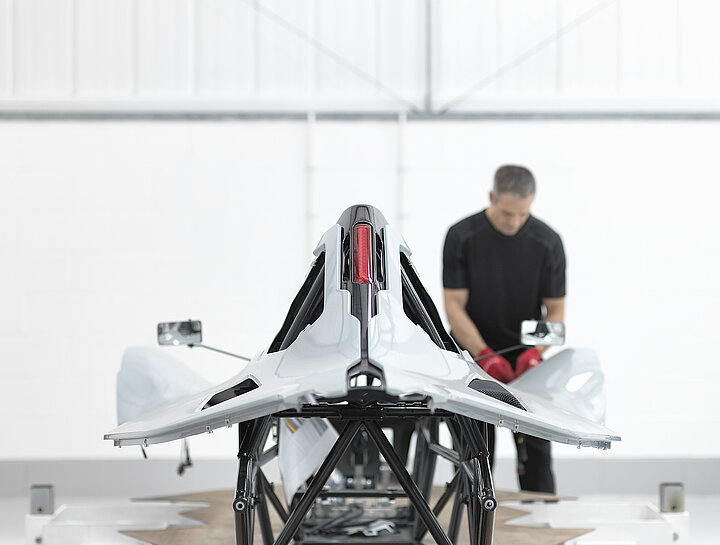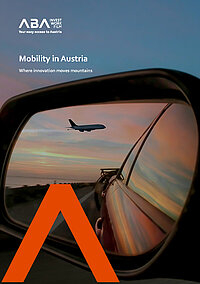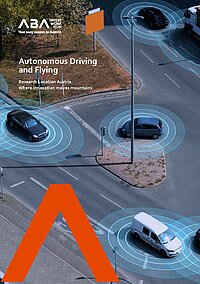
Mobility in Austria
Austria plays a crucial role in driving innovative mobility concepts, both as a manufacturer and supplier of vehicle technologies, and through innovations in the rail and aviation industries.
Contact usMobility in Austria
The automotive industry in Austria in particular is very advanced and has great market potentialmarket potential ().
Innovative drive systems, electromobility and autonomous driving are just a few examples of the pioneering developments in which Austrian companiesAustrian companies () are actively involved. Innovations in the rail industry are another key element that improves mobility in Austria and beyond.
State-of-the-art rail infrastructure, fast connections and environmentally friendly train systems contribute to the efficiency of transportation and ensure a sustainable mobility industry in Austria. The aviation industry also plays a crucial role by setting a focus on the development of environmentally friendly and efficient air transportation systems. Austria's commitment in these areas strengthens its position as a pioneer in the field of innovative mobility and contributes to the country's economic development.
Winning Team:
Automotive & Austria
What do a BMW engine and a VW emblem have in common? In all likelihood, both come from Austria. All the parts a car needs are produced here. Not to mention entire vehicles, from an SUV to a fire engine.
Austria is an international player, producing and supplying vehicles, vehicle parts and technologies. The automotive industry offers its customers a top-notch performance in areas such as chassis construction, electronics, engines and service. There is hardly a single automobile anywhere in the world that comes off the production line without components that are “Made in Austria."
Austria’s role as important driving force behind innovative mobility concepts is also shown in the key area of autonomous driving. Numerous companies develop and test the transport solutions of tomorrow here. For example, TTTech, originally a spin-off of the Vienna University of Technology, is now a global player thanks to its "MotionWise" software. Corporations such as Samsung and Infineon are investing in the cutting-edge technology for safe, self-driving cars. The proving grounds for automated driving offered by Digitrans and ALP.Lab provide two of the most multifaceted testing areas for autonomous driving in all of Europe.
Mobility in Austria
Download our brochure with all information about Austria's mobility sector.
Everything on track(s)
Austria’s rail industry
When it comes to innovations in the rail industry, there is no way you can do without Austrian developments. Companies of the domestic rail industry rank among the most innovative anywhere in the world. Austria ranks sixth globally with respect to the number of registered patents and number of inventors. Today, 2-3% of all rail-related patents and every second track superstructure patent originate in Austria.
The products encompass the entire spectrum from railway carriages, tracks, safety and control technology to metro systems and high-speed trains. The rail transport portfolio also includes completely new segments such as cargo, logistics, tourism, planning, project management, environmental compatibility and international partnerships. The national rail industry, featuring an export ratio of 68%, is also an important factor in Austrian foreign trade: On average, almost two out of three euros generated by the Austrian rail industry are earned abroad. This makes Austria one of the leading countries in the railway sector featuring one of the world's most efficient railway systems.
Aviation Made in Austria
Firstly, the aviation industry makes a significant contribution to the creation of highly qualified jobs.
Highly specialized professionals are in demand in research and developmentresearch and development () as well as in the production of aircraft parts and components. This contributes to the creation of jobs in a knowledge-based sector. Secondly, the aviation industry in Austria has a strong export orientation. The production of high-quality aircraft components and systems serves international markets, which leads to considerable export revenues.
Thirdly, the aviation industry promotes technological innovation. Advances in the areas of material science, engine technology, environmental friendliness and flight safety are being driven forward, which also has a positive impact on other sectors such as the automotive industry in Austria. Austria is perceived as a reliable and highly qualified partner in the global aviation community. This in turn helps to strengthen international competitiveness and create further business opportunities. Overall, the aviation industry in Austria plays an important role in promoting economic growth and innovation.
Delivery, maintenance, repair and service have made aviation a growing sector here for decades. Since the year 2000, about € 400 million have been invested in research, technology and innovation. The underlying objective of the funding of automotive is to place the country on an even broader basis as a successful supplier
Examples of top players in aviation
- 01
FACC
FACC is a leader in the design, development and manufacture of advanced components for aircraft. Every second, an aircraft with FACC technology on board takes off worldwide. Together with its partner EHang, FACC set an important milestone in urban mobility in 2021: The autonomous EHang 216 aircraft completed a successful test flight in 2021 and received an official test permit.
- 02
Schiebel Group
The globally active Schiebel Group focuses on the development, testing and production of the revolutionary CAMCOPTER® S-100 unmanned aerial system.
- 03
Diamond Aircraft
The industry pioneer Diamond Aircraft, based in Wiener Neustadt, is one of the leading aircraft manufacturers in general aviation. Over 5,500 Diamond aircraft are in service worldwide.
- 04
AIRlabs Austria
At AIRlabs Austria, the expertise of 25 players from industry and research come together - or rather fly together. They test unmanned aerial systems at various stages of technological maturity and innovation.
- 05
Lufthansa Technik / Inairvation
Lufthansa Technik / Inairvation is the top provider of modern solutions for the aircraft cabin - from in-flight entertainment and equipment to cabling and lighting technology.
Success Stories
Our services
We simply get it done – for you!
Would you also like to use Austrian technological know-how in your company? We are familiar with the best providers and hidden champions in the country – and will be pleased to link you with them.
Downloads
Download now all the information about Mobility in Austria.

Mobility in Austria


